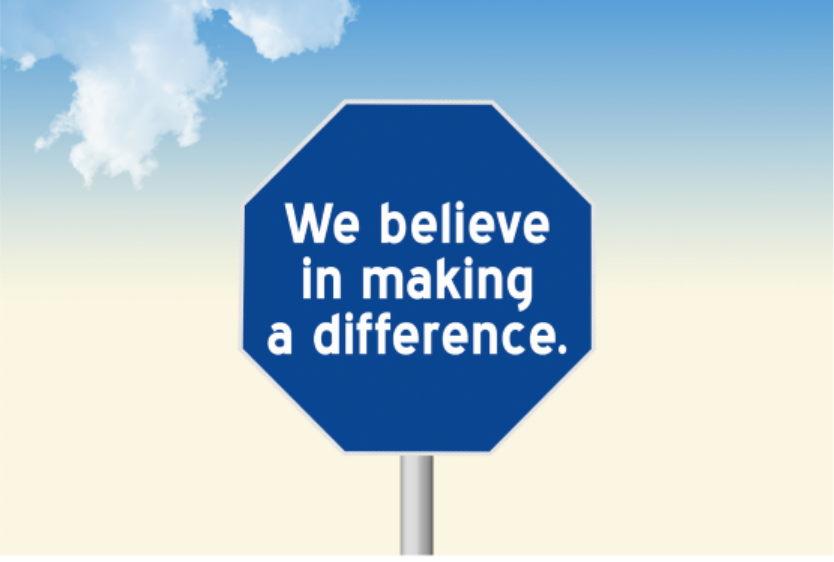Ecocentricity Blog: The Ethics of Environmentalism

Ecocentricity Blog: The Ethics of Environmentalism
I just binged the heck out of The Good Place (thanks for the recommendation Whitney!). It’s an NBC comedy starring Kristen Bell, with the plot centered on four humans who have died and are now experiencing the afterlife. As the name implies, there is a “good place” and a “bad place,” roughly heaven and hell by common understanding, but without any adherence to a particular faith tradition. Much of the comedy is situational, but there is a detailed (if winding) plot with solid character development. I enjoyed it for multiple reasons, and the finale even twanged a few of my heart strings.
For my purposes here though, I want to touch on the constant refrain of ethics and moral philosophy throughout the show. Much like The Big Bang Theory takes highly complex scientific principles and bakes them into 22 minutes of showtime, The Good Place does the same with highly complex ethical theory. For instance, the show explores concepts like the ethics of lying and moral relativism. Such topics are highly appealing to your friendly neighborhood nerd on this side of the keyboard!
One of the four main characters in the show is Chidi Anagonye, an ethics professor during his life on earth. He is passionately dedicated to doing what is right, but his fatal flaw is his analytical paralysis that shows up any time it isn’t clear what “right” is. In short, the dude struggles with decision-making. Much of this personality trait stems from his strict adherence to the teachings of one particular philosopher – Immanuel Kant.
Now hang with me here, I promise an environmental point is coming. Kant was an 18th century German philosopher who was famous for lots of theories, but at the top of the list is his “categorical imperative.” This theory dealt with the highest moral obligation humans have – essentially, he tried to sum up all of morality into one ultimate commandment rooted in reason (as opposed to religion). So here is Immanuel Kant’s categorical imperative:
“Act only according to that maxim whereby you can, at the same time, will that it should become a universal law.”
Essentially, Kant is saying that all humans should act in the ways that they wish everyone else would act. If you think everyone should stop at stop signs to make driving safer, then you should stop at stop signs. If you think everyone should volunteer in their communities, then you should volunteer in yours. If you think candy corn is a disgusting, morally reprehensible candy (as I do) that no one should give out at Halloween, then you should never give it out.
When Ray Anderson wrote Mid-Course Correction back in the late 1990s, in which he told the story of his environmental epiphany and imagined the prototypical company of the 21st century, he wrote a chapter entitled “The Power of One.” My grandfather believed firmly in the ability of a single company, and even a single individual, to have transformative influence in creating a more sustainable world. In that chapter, Ray relied upon Kant’s categorical imperative in making the case that individual environmental actions are important. I agree with my grandfather.
If you wish everyone would compost their food waste to help mitigate climate change, then you should compost. If you wish everyone would refuse plastic straws to help keep them out of the oceans, then you should refuse plastic straws. If you wish everyone would vote for politicians who care about the environment, then you should vote for politicians who care about the environment. And through your power of influence, your example can inspire others to do the same.
And in the words of Ray Anderson – “By God, what if everybody did it?”
This blog is available weekly via email subscription. Click here to subscribe.
RELATED BLOGS:
Ecocentricity Blog: Who's Your Favorite Chemist?
Ecocentricity Blog: Poetry for the Planet
CONTACT:
Valerie Bennett
+1 (770) 317-5858
valerie@raycandersonfoundation.org
Ray C. Anderson Foundation
http://www.raycandersonfoundation.org
Facebook: https://www.facebook.com/RayCAndersonFoundation
LinkedIn: https://www.linkedin.com/company/ray-c.-anderson-foundation
Twitter: @RaysLegacy
Instagram: @rcafoundation

